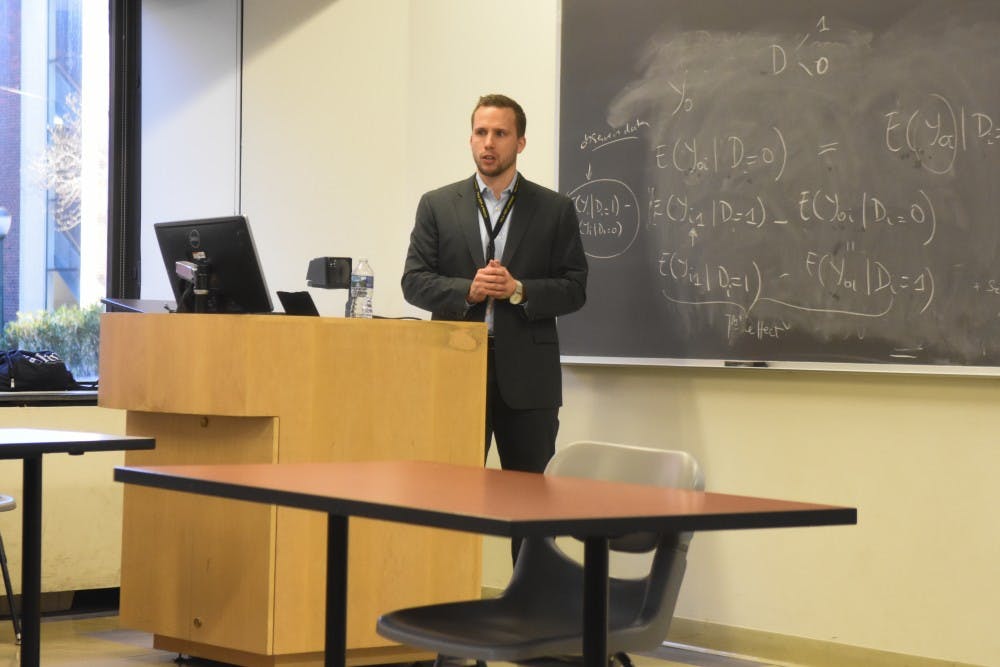
A talk hosted by Penn's Criminology Department emphasized the importance of data analysis in prison reform, as Philadelphia Department of Prisons Director of Research Reed Domer-Shank shared his career experience to students on Feb. 7.
The event was part of a course entitled “Criminology in Practice,” where, according to Director of the Criminology Master's Program Greg Ridgeway, the goal is to “expose students to the practice of criminology,” whether the speaker be a former prisoner or a police officer. Domer-Shank returned to the criminology department for the talk, where he received his master's degree in 2007.
Currently, Domer-Shank said he is interested in outcome studies, which include answering questions such as whether solitary confinement is effective as well as the changes implemented for improvement.
“I was surprised when I started at the PDP ten years ago, how many decisions-makers really were not knowledgeable or were not comfortable with basic statistical concepts,” Domer-Shank said to the students. “I still believe more than ever that the criminal justice field needs more people like you, like us."
Domer-Shank shared statistics with the students to demonstrate the state of incarcerated people. “This is a really at-risk, vulnerable population,” Domer-Shank said. 30 percent of inmates are homeless, a statistic which Domer-Shank said he believes increases after leaving prison, and 80 percent come from areas that are "medically underserved."
Domer-Shank also said that any given person in the Philadelphia Department of Prisons House of Corrections — which houses mainly pre-trial inmates, probation violators or those with low-level charges — would have already been there six times before on average.
“It really speaks to the revolving door phenomenon that is just present across the board,” he said.
While recent years has seen a decrease Philadelphia's crime rate, the city has the highest rate of incarceration per capita out of the 10 largest cities in the nation, according to The Philadelphia Inquirer. In a recent election for the city's new District Attorney, criminal justice reform was a hotly-debated topic among Philadelphians and Penn students alike.
During Domer-Shank's time at the PDP, the population has decreased from 10,000 — when they had to place three inmates to a room — to about 6,300, Domer-Shank said. He added that the PDP hopes to reduce the numbers so that the House of Corrections, which is in need of renovations, no longer needs to be used.
The progress, however, he attributes to the city and its policy changes.
“We at the PDP have no control over who hits our doors," he said.
Other projects Domer-Shank has worked on at the PDP include the conversion of physical medical records to an electronic system as well as the analysis of that data. He added that he was also in charge of ensuring that standards of medical care are being met.
Graduate student in the Master's Criminology Program Haley Hansen said the talk “pertained to what a lot of us want to do,” which includes data, research, and policy. The students in the classroom had interests ranging from the application of information-technology as to medical care.
Haley said she was specifically interested in the idea of recidivism, the likelihood that someone would reoffend, in addition to programs concerning mental health.
The Daily Pennsylvanian is an independent, student-run newspaper. Please consider making a donation to support the coverage that shapes the University. Your generosity ensures a future of strong journalism at Penn.
Donate




